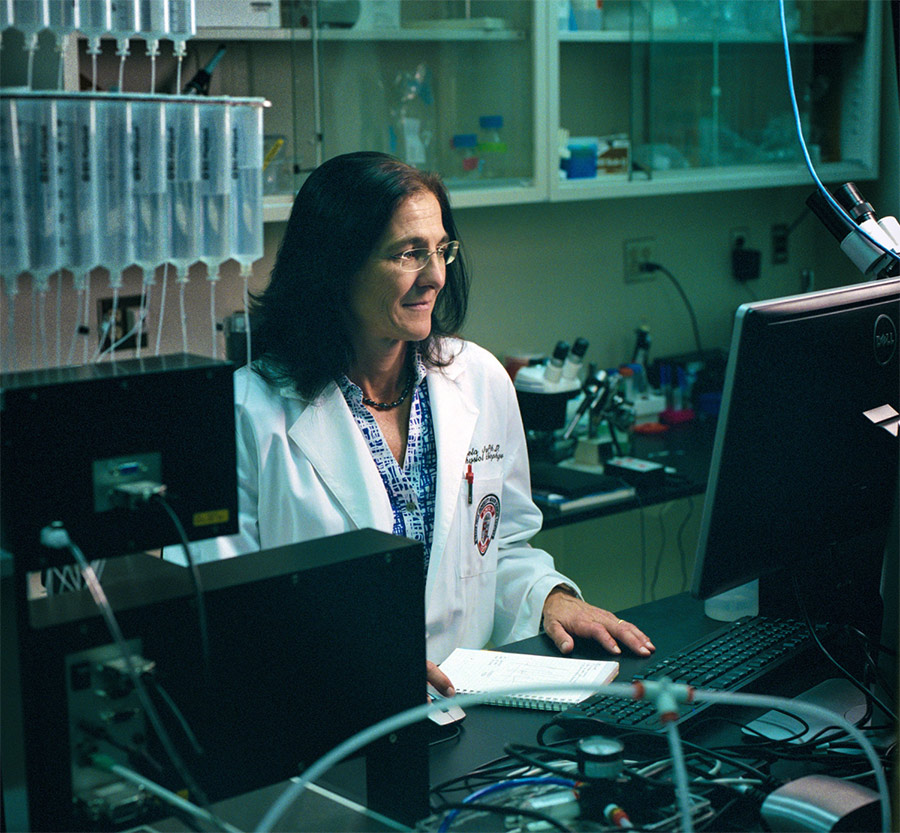 GRADUATE SCHOOL OF BIOMEDICAL SCIENCES
GRADUATE SCHOOL OF BIOMEDICAL SCIENCESNeurological Disease Grant
Michaela Jansen, PharmD, PhD, associate professor in the Department of Cell Physiology and Molecular Biophysics, and her team are continuing their research with a $1.53 million R01 grant from the National Institute of Neurological Disorders and Stroke, a division of the National Institutes of Health.

STUDENT RESEARCH WEEK
2| The theme for Student Research Week 2023 is set for February 28-March 3, with a theme of “The Lord of the Genes.”
3| More than 310 students, a record-breaking number, presented posters at the 2022 event. In the first year, 25 students participated.
4| Student Research Week 2022 was held as a hybrid event, allowing for the review of projects and presentations in person and online. SRW 2021 was virtual.
5| Presentation categories are basic science, case study, medical education, chart review/survey and literature review.
6| Abstract submission deadline is the end of January each year.
7| Proceeds from a silent auction benefit student scholarships.
8| Annually, more than 50 TTUHSC faculty and staff donate their time and expertise to serve as judges; in 2022, that number was close to 80.
9| Sam Prien, PhD, professor in the School of Medicine Department of Obstetrics and Gynecology, has served as an event judge for 25 years.
10| Ten years ago, Gurvinder Kaur, PhD, (Biomedical Sciences ’12), assistant professor of Medical Education, won first place in the poster competition the year she graduated. Kaur has served as a judge, judging committee chair and supervised several undergraduate and graduate student participants.